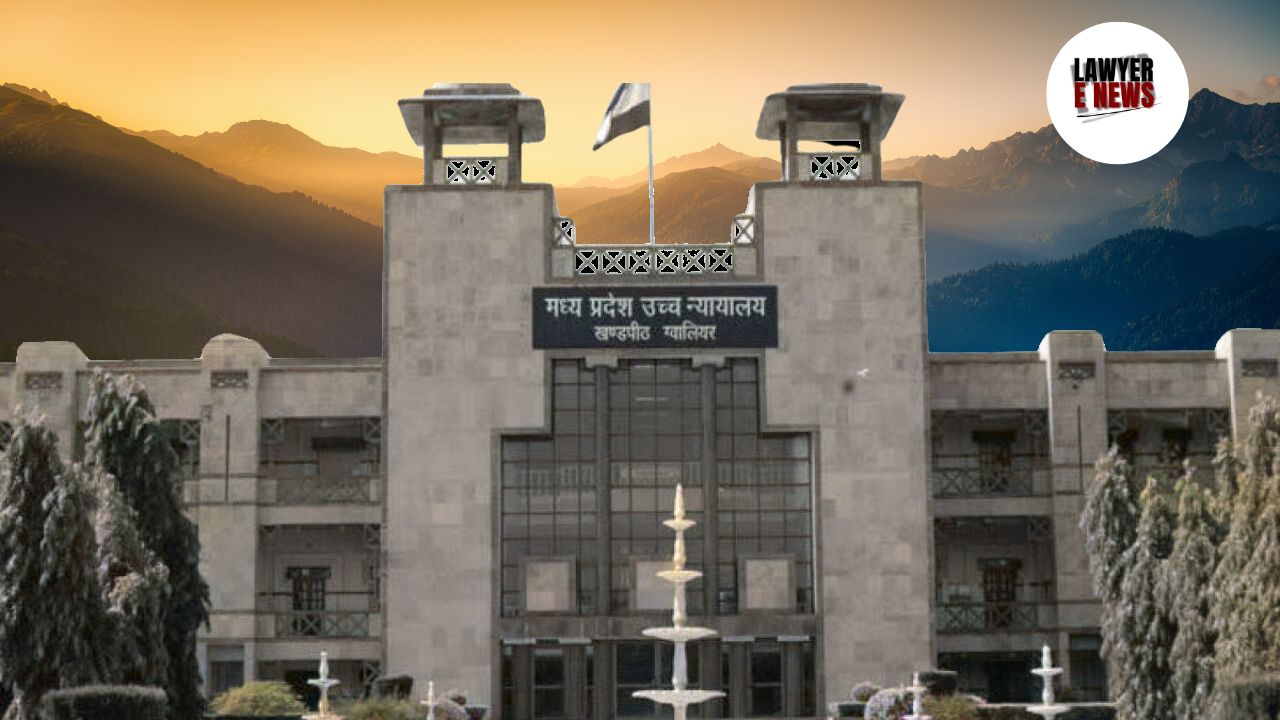-
by Admin
15 February 2026 5:35 AM



Madhya Pradesh High Court overturned a trial court's decree granting specific performance in a real estate dispute. Justice Pranay Verma held that the plaintiff, Dharmesh Jain, failed to establish his continuous readiness and willingness to perform his obligations under the contract, as mandated by Section 16(c) of the Specific Relief Act, 1963.
The case involved the sale of a flat in Indore for ₹3.5 lakh, with a written agreement dated May 5, 1995. The plaintiff alleged breach by the seller, while the second defendant, a subsequent purchaser, contended that the plaintiff's claims were baseless.
The plaintiff claimed that the original seller had agreed to sell the flat, accepted the entire sale consideration, and promised to deliver possession. However, the property was sold to the second defendant in August 1997, prompting the plaintiff to file a suit for specific performance on May 4, 1998, just one day before the limitation period expired.
The trial court had ruled in favor of the plaintiff, finding the agreement valid and holding that the seller breached the contract. It directed the execution of the sale deed in favor of the plaintiff while declaring the subsequent purchaser’s claim invalid.
The High Court reversed the trial court’s judgment, emphasizing the absence of a consistent demonstration of readiness and willingness on the plaintiff’s part. Justice Verma observed that the plaintiff’s pleading was insufficient and failed to meet the legal requirement under Section 16(c).
The judgment noted that the plaintiff only mentioned readiness and willingness in passing and failed to demonstrate continuous intent to perform his contractual obligations. Justice Verma remarked, “Merely expressing readiness once cannot substitute the statutory requirement of consistent readiness and willingness throughout the contract period and litigation.”
The Court also highlighted that the suit was filed on the last permissible day of the limitation period, casting doubt on the plaintiff’s intent to diligently pursue the agreement.
The High Court allowed the subsequent purchaser, the second defendant, to contest the plaintiff’s readiness and willingness, citing the Supreme Court’s precedent in Ram Awadh v. Achhaibar Dubey. It clarified that a subsequent purchaser can raise objections under Section 16(c) if the plaintiff fails to establish his case, even if the subsequent purchaser was aware of the prior agreement.
While dismissing the specific performance claim, the High Court directed the seller to refund the ₹3.5 lakh received from the plaintiff, with 6% annual interest from the date of payment. This ensures the plaintiff is compensated for his financial loss without enforcing a transaction that lacked legal merit.
This judgment underscores the judiciary’s insistence on strict compliance with Section 16(c) of the Specific Relief Act. It emphasizes that plaintiffs must demonstrate an unbroken chain of readiness and willingness to enforce specific performance. The decision balances contractual enforcement with the rights of bona fide subsequent purchasers, offering a nuanced interpretation of equitable relief in real estate disputes.
Date of Decision: November 20, 2024.
